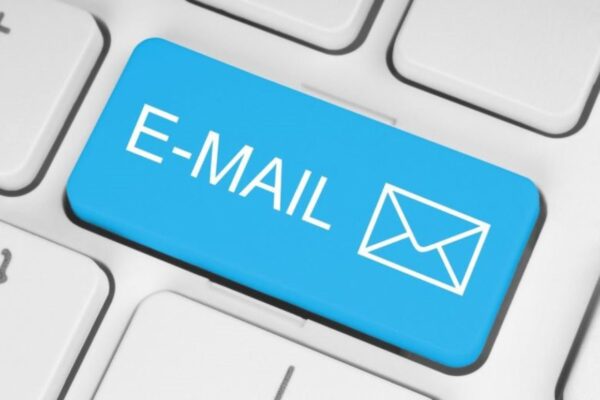
It may feel that email has been around forever, but it has in fact only been around for 40 odd years.
Living in an age of instant messaging and social media, many are beginning to question the longevity of email and if in the near future a specific platform will replace what we have used for so long.
Well we’ve done our research and to answer that question, the answer seems to be no! Despite what some people think, many of the critics and IT professionals out there do not think that email will be disappearing any time in the future. While there may be other ways to lessen your use of email, the chances of it becoming obsolete are very small.
To prove this, we have come up with a list of advantages of email, which ensure that it won’t be disappearing anytime soon:
- It is almost completely impossible to use Internet technologies without an email address1. If you think about it, every account you have ever made, whether that be for social media, online shopping or even operating systems, you have to have an email to finalise the account. These email addresses are used as an identifier by these sites, to confirm your identity1. Without it making any type of account would be very difficult.
- Nobody owns emails1. There are no restrictions when it comes to email1. Anybody can create an account without having to pay a fee1. Unlike so messaging platforms, this is email’s one unbeatable advantage – everybody either already has an email address, or can easily obtain one with very little difficulty1.
- Email can distribute any file type1. Although some email services impose restrictions on some file types or the size of the files that you can send, generally speaking you can send documents, photos or even music to your friends via email1. Organisations can send you newsletters, airlines can send you your boarding passes. All of which helps to make our lives easier.
- It’s a store and forward system1. Unlike some social platforms, you don’t have to continuously be online to receive and/or exchange emails1. They never disappear, you can store them for years, for future reference. It also gives you the easy opportunity to forward these messages on at the touch of a button, or can be easily printed out1. Meaning unlike social media apps like Snapchat, you always have the data or information you need.
- It’s everywhere. Unlike some instant messaging applications, email is available on EVERY device2. You can access it on your desktop, iPad, phone or even someone else’s computer, meaning you are always connected to your contacts2! But this also works vice-versa, as your contacts are also always connected to you, as everyone (or almost everyone) has at least one email address! Neither you or your contacts have to learn a new system or application, like some other messaging applications, email is super easy, as everyone already knows how to use it2!
- It’s flexible. Unlike many other communication platforms, email is very easy to use and you know for sure that the other person (on the receiving end) will receive your email2. Whereas some platforms that are trying to replace email, require the user to undertake various actions, just to ensure the other person received their message2. For example, if you use the messaging application “Slack”, you have to ensure that you tag the other person in the message, otherwise it will get lost in the flow of communication, making it somewhat unreliable2.
Despite these strong advantages there are still a few drawbacks to email, with the main issue being spam. Spam emails are very common, in fact the majority of emails received are spam. So how do we stop this?
Unfortunately, there is no way to completely stop spam. Since Gmail tightened their spam filtering system however, many other major email exchanges have followed suit. But again no spam filtering system is perfect1. They either seem to be too generous or too strict. A generous system will allow a few borderline spam emails through to your inbox, while a strict system will filter legitimate emails into your junk folder1. Therefore, no matter what way you look at it, it’s going to be a difficult situation. You will either be deleting “false positives” or continuously searching for “false negatives”1.
Another drawback, is that unlike some instant messaging applications, such as WhatsApp, email is not encrypted. Instead it is sent as plain text, and bounces off a number of servers before it is received1. Whereas, WhatsApp, uses open whisper encryption, meaning that the message can only be read by the receiver and sender, ensuring maximum privacy1.
Despite these few drawbacks, “email is fast, asynchronous, open, private, mobile, searchable and archivable”3, making it the go to platform for many. Although many believe that email is nearing the end of its life, the majority of IT professionals do not see it disappearing anytime in the near future. Instead believe that even if an alternative option were to become available, and could do everything that emails do, it would still have the same problems that we do today1.
References:
- J Schofield, Is there a replacement for email? The Guardian, 2017, viewed 1 March 2017, <https://www.theguardian.com/technology/askjack/2017/feb/16/is-there-a-replacement-for-email>
- M Rosoff, Sorry, Email Won’t Die In 2015 (Or Anytime Soon), Business Insider Australia, 2015, viewed 1 March 2017, <http://www.businessinsider.com.au/email-isnt-dying-2015-1?r=US&IR=T >
- A Turner, Is email dying? The Sydney Morning Herald, 2016, viewed 1 March 2017, <http://www.smh.com.au/digital-life/computers/blog/gadgets-on-the-go/is-email-dying-20110711-1h9n3.html>